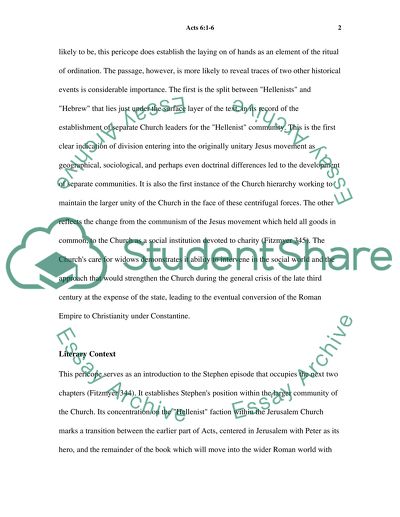Cite this document
(An Exegesis of Acts 6:1-6 Case Study Example | Topics and Well Written Essays - 2250 words, n.d.)
An Exegesis of Acts 6:1-6 Case Study Example | Topics and Well Written Essays - 2250 words. Retrieved from https://studentshare.org/religion-and-theology/1552129-exegesis-on-acts-chapter-six-verses-one-through-six
An Exegesis of Acts 6:1-6 Case Study Example | Topics and Well Written Essays - 2250 words. Retrieved from https://studentshare.org/religion-and-theology/1552129-exegesis-on-acts-chapter-six-verses-one-through-six
(An Exegesis of Acts 6:1-6 Case Study Example | Topics and Well Written Essays - 2250 Words)
An Exegesis of Acts 6:1-6 Case Study Example | Topics and Well Written Essays - 2250 Words. https://studentshare.org/religion-and-theology/1552129-exegesis-on-acts-chapter-six-verses-one-through-six.
An Exegesis of Acts 6:1-6 Case Study Example | Topics and Well Written Essays - 2250 Words. https://studentshare.org/religion-and-theology/1552129-exegesis-on-acts-chapter-six-verses-one-through-six.
“An Exegesis of Acts 6:1-6 Case Study Example | Topics and Well Written Essays - 2250 Words”. https://studentshare.org/religion-and-theology/1552129-exegesis-on-acts-chapter-six-verses-one-through-six.


